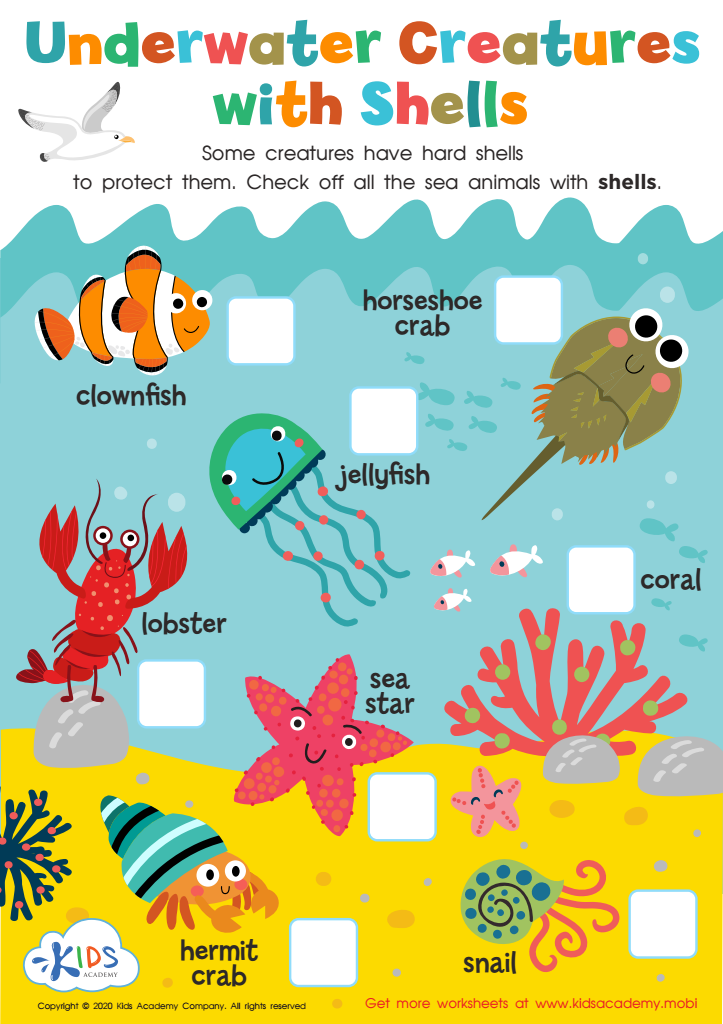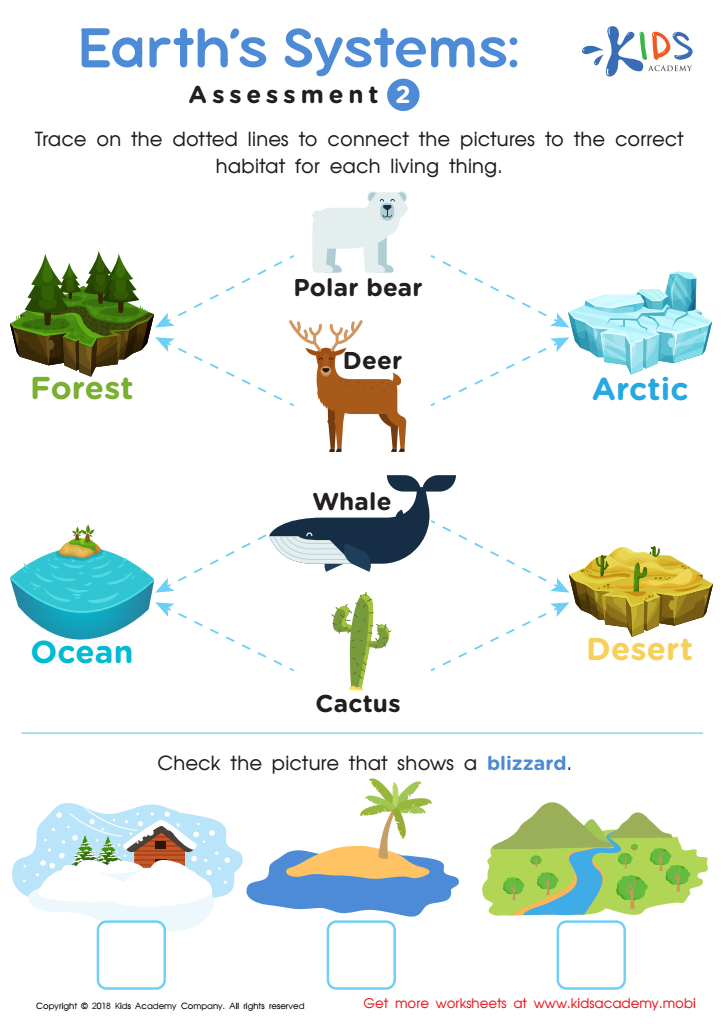Counting skills Animals Worksheets for Ages 4-7
3 filtered results
-
From - To
Explore our engaging Counting Skills Animals Worksheets specifically designed for children aged 4-7. These worksheets combine the fascination of animals with essential counting practice, making learning both fun and effective. Through vivid illustrations and interactive tasks, kids learn to count, recognize numbers, and build strong foundational math skills. Perfect for early learners, these printable worksheets focus on numeracy using animal-themed activities that capture young imaginations. Foster a love for numbers and wildlife simultaneously! Ideal for home or classroom use, our worksheets are an exciting way to support your child's educational journey. Visit us to download now!


African Wildlife: Giraffe Worksheet


Underwater Creatures with Shells Worksheet


Earth's Systems: Assessment 2
Counting skills are foundational for young children, and integrating animals into counting activities makes learning more engaging and effective for kids aged 4-7. At this age, children are naturally curious and drawn to animals, which makes animal-themed counting exercises significantly more enjoyable and relatable. This positive association can foster a love for learning early on.
Counting skills are vital because they form the basis for more advanced mathematical concepts such as addition, subtraction, and even understanding patterns and sequences. Mastery of these basics sets the stage for future academic success in mathematics.
Furthermore, using animals in counting can enhance other areas of development. For example, when kids count animals, they often engage in storytelling and imaginative play, which boosts language and social skills. It also helps with memory and cognitive development, as children need to recall different numbers and animals.
Counting animals can also be used to teach broader concepts such as categorization, comparison, and scientific knowledge about the animal kingdom, enriching their education beyond just numbers.
In summary, incorporating animals into counting exercises is a multifaceted educational strategy that engages children, reinforces essential math skills, and fosters comprehensive development, making it a highly beneficial approach for parents and teachers to adopt.

 Assign to My Students
Assign to My Students







%20(1).jpg)











